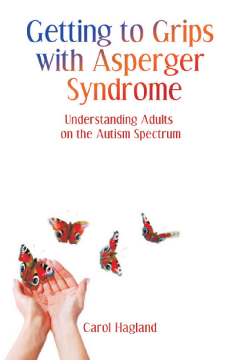
Additional Information
Book Details
Abstract
Getting to Grips with Asperger Syndrome is a practical, problem-solving guide for those caring for or supporting an adult with Asperger Syndrome (AS). It will help them understand the condition and the difficulties it may cause, so that they can offer support in the most beneficial way.
The book explains what AS is and why certain behaviours frequently occur: such as anxiety, fear of change and unusual sensitivities. Once behaviours and reactions are understood, many of the apparent problems become less troublesome, and difficulties can be avoided or easily-resolved. Practical strategies are offered to combat problems that may arise, and common issues that specifically occur with individuals diagnosed later in life are addressed.
Easy-to-read and accessible, this book is a useful reference for friends and family of individuals with AS, as well as health and social care staff and students, whatever the level of training and experience.
The success of this book is truly in the author's ability to convey in each chapter what Asperger Syndrome may look like on a day to day basis... In a remarkable way, the author is describing and illustrating the most insignificant and potentially trivial daily issues all of us encounter by through the eyes of the individual with Asperger Syndrome which transform these circumstances and situations into a true and rather different challenge... The book would be very useful and helpful to parents and other family members, educators and Para-professionals. A very well written, easy to read and rooted in reality exposure book that sheds light on the population of adults with AS which at times get forgotten.
Journal of Autism Developmental Disorders
Carol Hagland worked as a chartered clinical psychologist in the NHS for over thirty years - the last ten being in the field of learning disabilities. During that time she developed a particular interest in Asperger Syndrome, and worked with many clients and their families or carers, providing diagnoses, counselling and advice about care and support.
